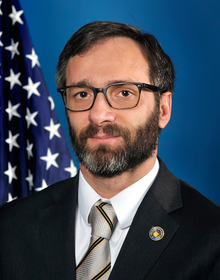ATF Welcomes Legal Scholar Robert Leider as New Chief Counsel
Author: Nick Miles | Publish Date: Mar 25, 2025
The Bureau of Alcohol, Tobacco, Firearms and Explosives (ATF) has appointed a new leader for its legal department. Robert Leider has stepped into the role of Assistant Director and Chief Counsel, bringing with him extensive scholarly experience in firearm regulation and constitutional law.

Leider, who transitions to this position following the departure of former General Counsel Pamela Hicks, represents a shift from career government service to academic expertise. His background includes prestigious credentials: a clerkship with Supreme Court Justice Clarence Thomas, faculty position at George Mason University's Antonin Scalia Law School, and significant experience in appellate and Supreme Court litigation while in private practice.
As a legal scholar, Leider has published several notable works examining nuanced aspects of constitutional law, particularly regarding armed force and the Second Amendment:
- In "Deciphering the 'Armed Forces of the United States'," he explores historical distinctions between professional and non-professional military forces, challenging conventional interpretations of "army" and "militia." His research suggests that "militia" encompasses all Selective Service System registrants, expanding beyond just National Guard membership.
- "Taming Self-Defense: Using Deadly Force to Prevent Escapes" examines the legal framework allowing law enforcement to use lethal force during suspect escapes, analyzing how this differs fundamentally from standard self-defense doctrine.
- "The Individual Right To Bear Arms For Common Defense" presents an alternative perspective on Second Amendment interpretation, proposing a third framework beyond the typical individual rights versus collective militia rights debate.
Leider's appointment brings to the ATF a depth of scholarly expertise in Second Amendment jurisprudence, separation of powers, use of force doctrines, and relevant historical contexts—all areas directly pertinent to the bureau's regulatory responsibilities.